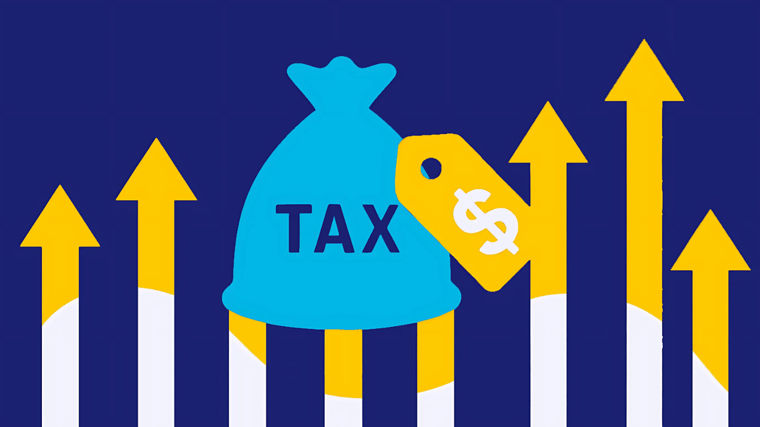Tariffs 2025: What’s going to cost you more (and what surprisingly won’t)
Share this post

Okay, let's talk about something you've probably already noticed: things just feel more expensive lately. From the grocery aisle to maybe even thinking about a new car, prices seem to be creeping up.
You might hear buzzwords like "tariffs" floating around, often mixed up with a lot of political noise. But what does it actually mean for your budget right here in Southeast Louisiana?
At OnPath, we watch these shifts closely because, honestly, they impact your bottom line. So, let's cut through the confusion and talk straight about what's happening, why some prices might be changing, and how you can navigate it without needing an economics degree.
What's the deal with tariffs?
Think of tariffs as taxes placed on goods brought into the U.S. from other countries. Recently, there have been some significant changes:
- There's now a sort of baseline 10% tariff on most imported goods.
- Goods specifically from China face much higher tariffs (like, really high).
- There was a temporary 90-day "pause" on some additional planned hikes for certain countries (excluding China), but that baseline 10% and the China tariffs are still largely in effect.
The bottom line? It costs more to bring many goods into the country, and often, that extra cost gets passed along to us at the checkout counter.
Expect higher prices on…
Cars and auto parts
Despite the recent 90-day pause on certain tariff increases, the 25% tariff on imported vehicles remains firmly in place. Starting May 3, the tariff will extend to imported auto parts, further impacting vehicle prices and maintenance costs. This policy is expected to raise prices on new and used cars by approximately 10–15%, with luxury models potentially increasing by $10,000 to $20,000.
Tech gadgets
Smartphones, laptops, and TVs are mostly manufactured in Asia, and the tariffs on Chinese electronics just ballooned to 145%. That $999 iPhone? It might now cost you around $1,119 or more. Gaming consoles, smart speakers, and tablets are also on the rise. Bonus ouch: tariffs on electronic components from Korea, Japan, and Taiwan remain at 10%, so even assembling domestically won’t dodge the price creep.
Food and groceries
Coffee, chocolate, wine, canned goods—the fancy stuff and the basics alike—are feeling the heat. Imports from countries like Brazil, France, and Colombia are now subject to a 10% blanket tariff. Even packaging materials like aluminum and plastics are pricier, which means you’ll likely see small upticks on everything from juice pouches to soda cans.
Baby and child essentials
A lot of baby gear is made abroad or assembled with global parts. With some items now facing up to 34% in import duties, safety essentials like car seats and strollers could see a $20–$50 price hike. Almost all toys sold in the U.S. are imported from China. With tariffs hitting toy makers hard, expect higher prices during birthdays, holidays, and back-to-school shopping.
Furniture
Upgrading the living room or kitchen? Many pieces are imported, and while some major hikes were paused temporarily, that 10% baseline (and higher costs for Chinese goods) still applies.
Personal care brands
Roughly 90% of your beauty and hygiene products are imported. From moisturizers to makeup, even basic shampoos and soaps could tick up in price. Expect a few extra bucks at checkout.
What’s staying affordable (for now).
Prescription medications
Good news: life-saving meds are tariff-exempt. Pharmaceuticals were spared due to their essential nature—so your prescriptions should remain steady in price for the time being.
Digital entertainment
Streaming services and online entertainment subscriptions remain unaffected. You can still binge-watch your favorite shows and crank up your playlists without worrying about extra charges.
Local goods
Produce, dairy, meats, and domestically manufactured goods won't see price hikes due to tariffs. So go ahead, splurge a little at your farmers’ market without guilt.
It’s not just tariffs affecting your wallet...
While tariffs are making headlines, there's another quiet conversation happening in Washington that could impact you directly: a push to start taxing credit unions.
Right now, credit unions like OnPath operate as not-for-profit cooperatives. That means instead of paying shareholders, we return earnings to you, our members, through things like lower loan rates, better savings yields, and fewer pesky fees.
A new tax on credit unions would essentially be a tax on the 140 million Americans who use them – including many of us right here. It could mean fewer financial benefits and hit community-focused institutions hard, while potentially benefiting big banks.
We believe strongly in the credit union difference and are advocating for our members. If you feel the same, you can learn more or share your thoughts with Congress at donttaxmycreditunion.org.
Final takeaways.
- Watch for price jumps in groceries, gadgets, and anything imported.
- Buy local when you can to avoid tariff-induced inflation.
- Big-ticket items like cars and appliances are worth purchasing sooner if you’re in the market.
- Follow the labels—“Made in USA” is your tariff-proof friend.
- Support Your Credit Union: Engage with initiatives like donttaxmycreditunion.org to voice your support for credit unions and the benefits they provide to communities.
If you found this article helpful, subscribe to our blog and have weekly financial insights delivered to your inbox.
Related Topics
Related articles
Sign up for the newsletter
Get the latest tips and tricks, delivered directly to your inbox.
Get the latest in your inbox.

